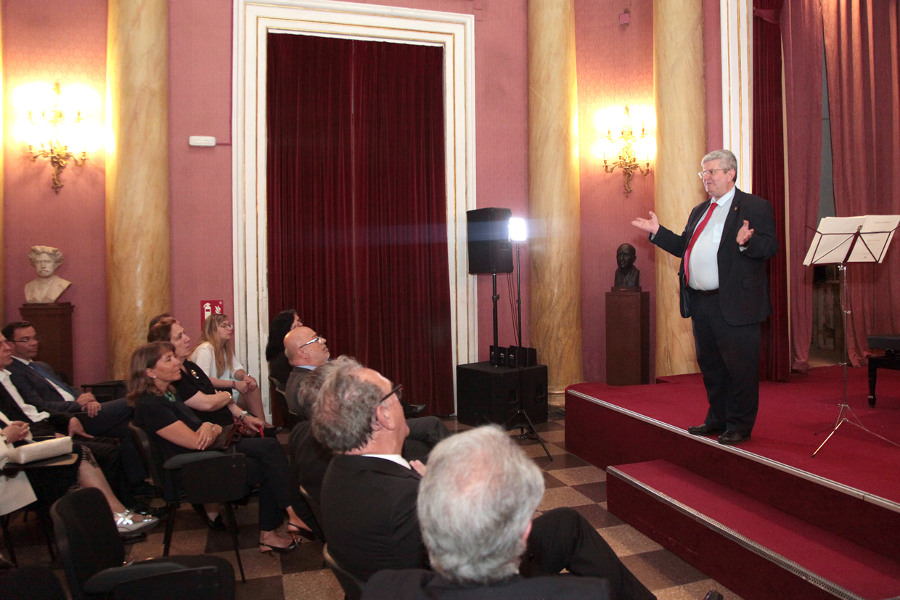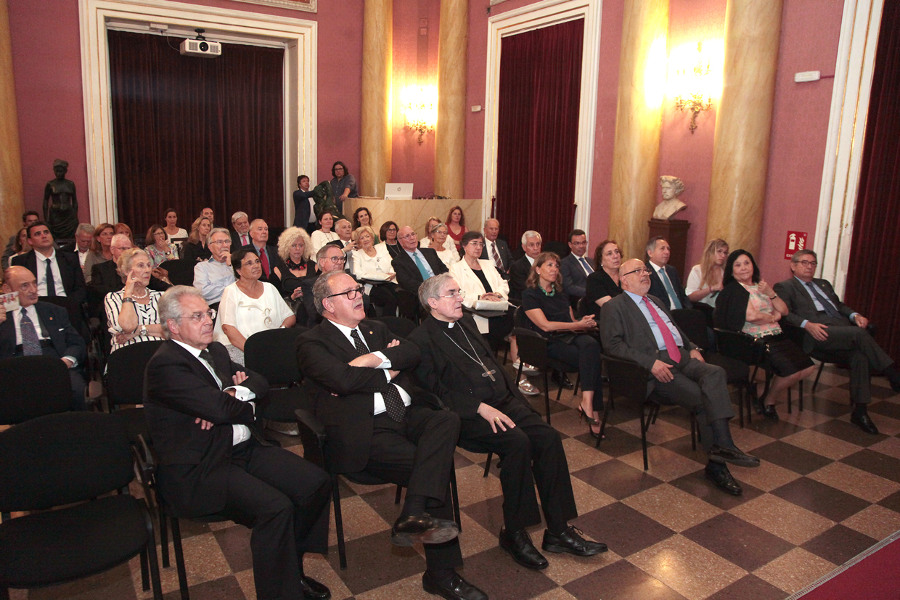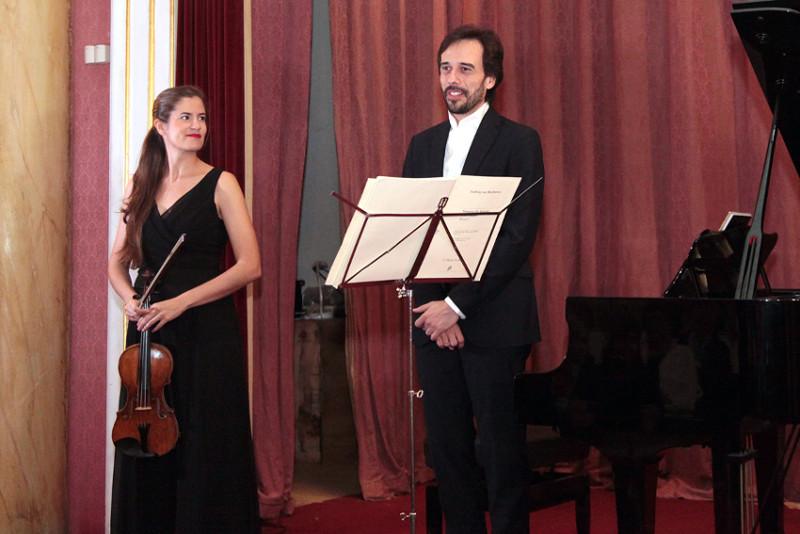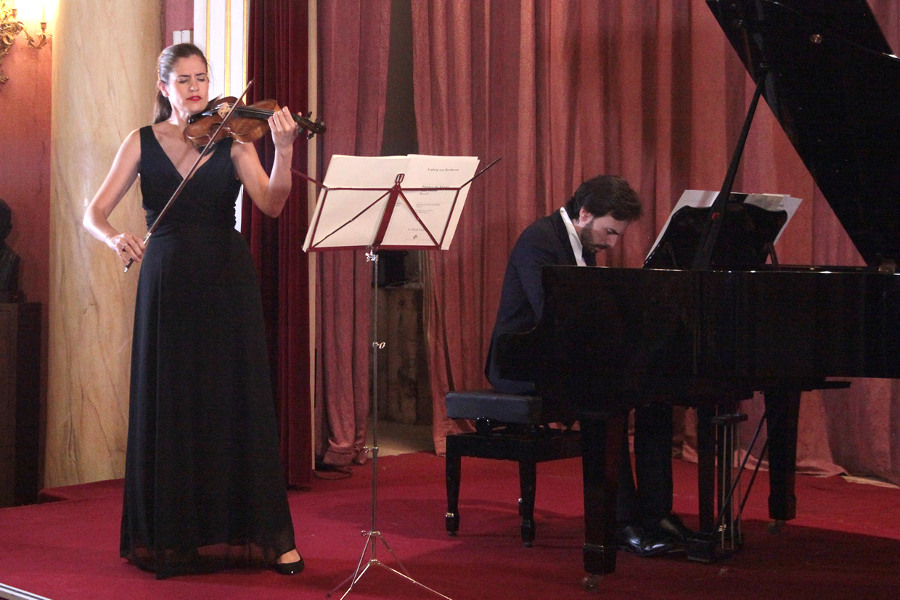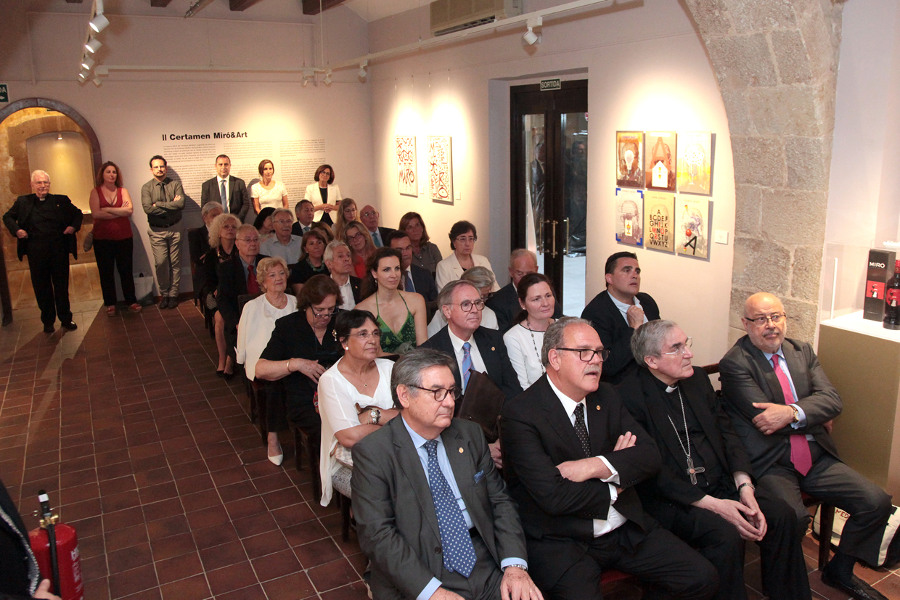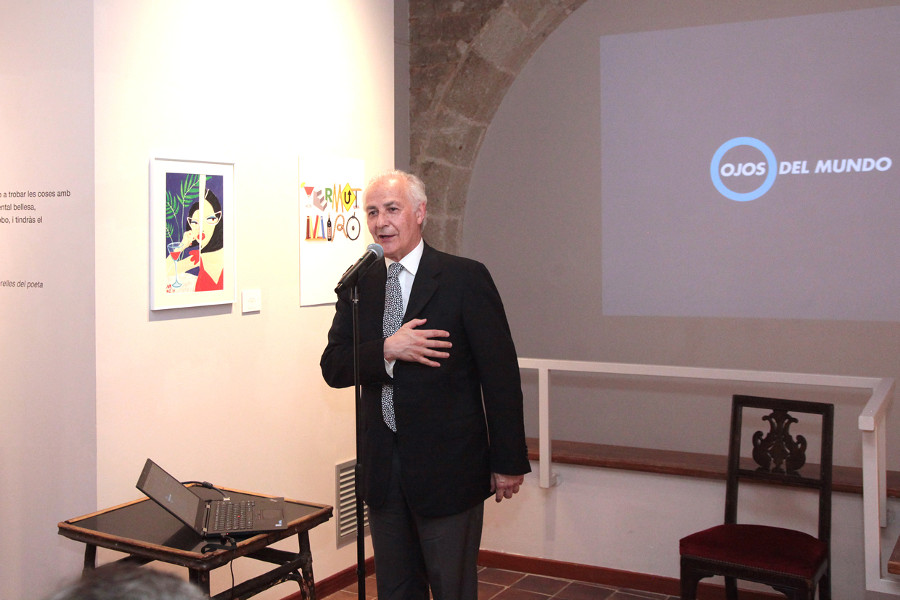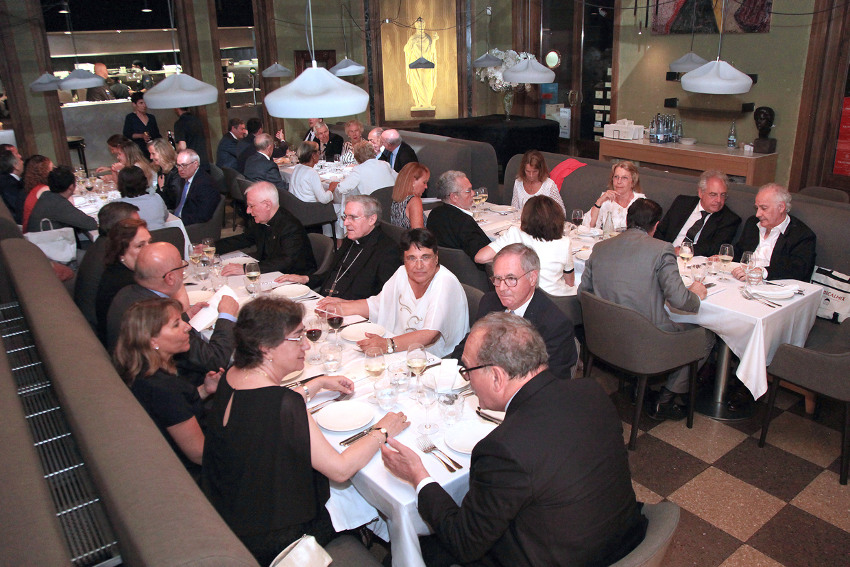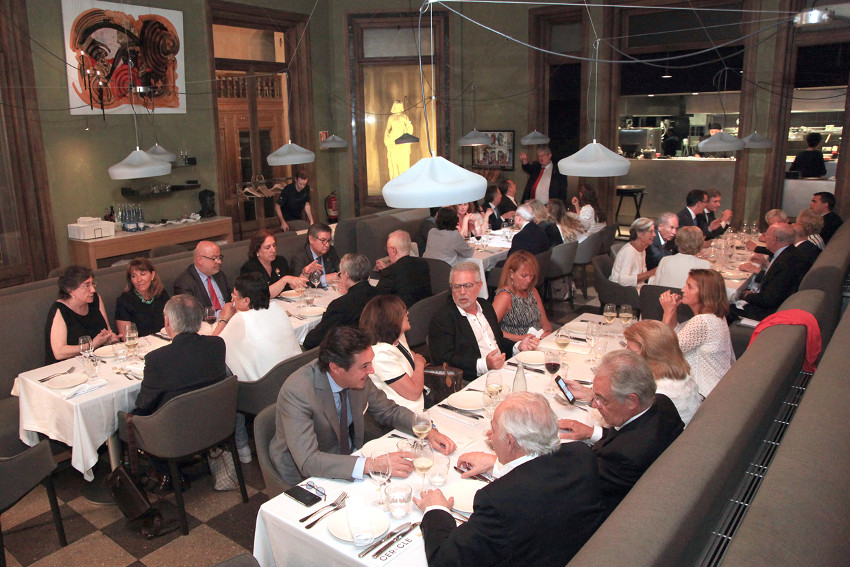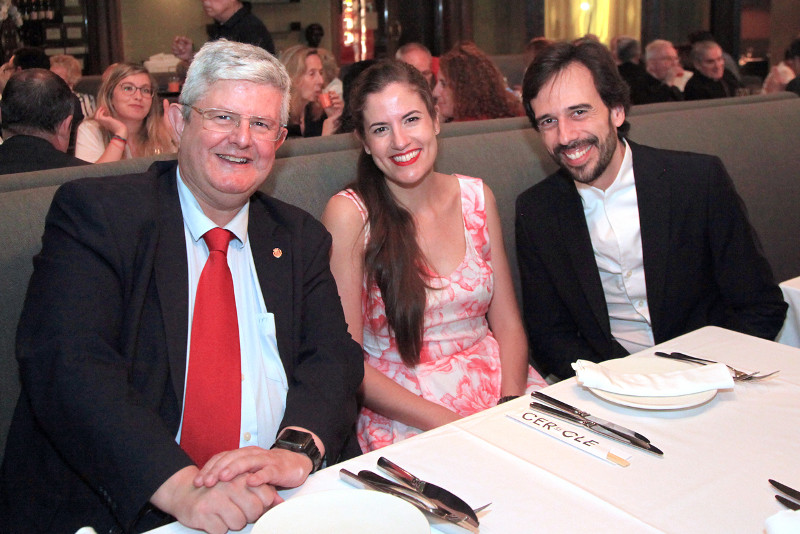The Royal Academy dedicates its cycle of solidarity concerts to the Eyes of the World Foundation
The Royal European Academy of Doctors-Barcelona 1914 (RAED) held, on July 2nd to 5th, its “Conciertos con Alma” (“Concerts with Soul”), featuring on this occasion Sheila Gómez (violin) and Iván Martín (piano) and the Eyes of the World Foundation. The cycle thus fulfilled its dual purpose of bringing great performers to Barcelona and spreading the cause of solidarity of a guest organisation. As on previous occasions, the recital was held at the Royal Artistic Circle of Barcelona and had the support of Jorquera Pianos.
The musical programme included a performance of Ludwig van Beethoven‘s well-known Sonata number 1 in D major, the Nocturne number 20 in C minor by Frédéric Chopin and various works by Gabriel Fauré, Fritz Kreisler; all once executed with great mastery by Chopin himself.
On behalf of the Eyes of the World Foundation, its vice president and full academician of the Royal Academy Borja Corcóstegui explained how its projects seek to respond to the visual-health needs of the most disadvantaged and vulnerable groups in society. In addition to promoting the importance of regular examination to facilitate access to diagnosis and the treatment that might be necessary.
“In the world it’s estimated that there are about 285 million people with severe visual deficiencies, of which 36 million are blind from cataracts. Of this large group of people with severe visual impairment, it’s estimated that 90% live in the most needy places, with little or no access to health systems” -Corcóstegui explained-. “Among the most frequent causes of visual impairment, 49% is accounted for by uncorrected refractive errors, 26% by cataracts, 4% by macular degeneration and almost 3% by glaucoma: This figures are set to rise over their next 30 years, due to the increase in the number of myopic patients whose condition cannot be corrected and the emergence of diabetic retinopathy. Further bad news lies in the fact that 75% of patients with preventable blindness cannot be treated or cured. In poor countries, every dollar that is invested in preventing someone from losing their vision has a return of 400%. We have a challenge, which is to prevent more than 115 million people from going blind or suffering significant visual impairment”.
The Eyes of the World Foundation, which was established in 2001 in Barcelona, operates in Tindouf refugee camp in the Western Sahara, and in Mozambique, Mali and Bolivia. It has set up ophthalmological hospitals in all four territories to care for the local population. After a few years of development and work supported by Spanish professionals, it opted for training involving local staff. It also carries out disease prevention campaigns through health education in schools, provision of consumables and permanent equipment, in addition to continuing to maintain patient examinations in clinics and operating rooms. Throughout these years, more than 7,000 specialists have been trained, more than 460,000 patients have been treated and more than 26,000 surgical interventions have been carried out.
The recital was followed by the traditional summer dinner of the Academy, which brought together more than 60 academics, family and friends of the RAED in the restaurant of the Royal Artistic Circle
The recital was followed by the traditional summer dinner of the Academy, which brought together more than 60 academics, family and friends of the RAED in the restaurant of the Royal Artistic Circle. The president of the Governing Board of the Royal Academy, Alfredo Rocafort, addressed the attendees at the close of the academic year and highlighted the great reception given to the 4th International Act-Congress of Interdisciplinary Research that the Royal Academy will hold in various Mediterranean cities between the next 11 and 18 July.
The “Conciertos con Alma” cycle was inaugurated last December at the Petit Palau of the Palau de la Música Catalana and was dedicated to the Vozes project of the Association of Musicians for Peace and Integration. The second of them recognised the initiative “Policías por y para valientes” (“Policing by and for brave people”), a campaign by the local Catalan police designed to raise funds for the Paediatric Hospital Cancer Centre in Barcelona; while the third disseminated the work of the Clarós Foundation, promoted by the RAED academician Pedro Clarós. The fourth of the cycles focused on the Sofía’s House project. Institute for the Interdisciplinary Management of Minority Diseases, which has the support of the Autonomous University of Barcelona, the Government of Catalonia and the City Council of Cerdanyola del Vallès.

